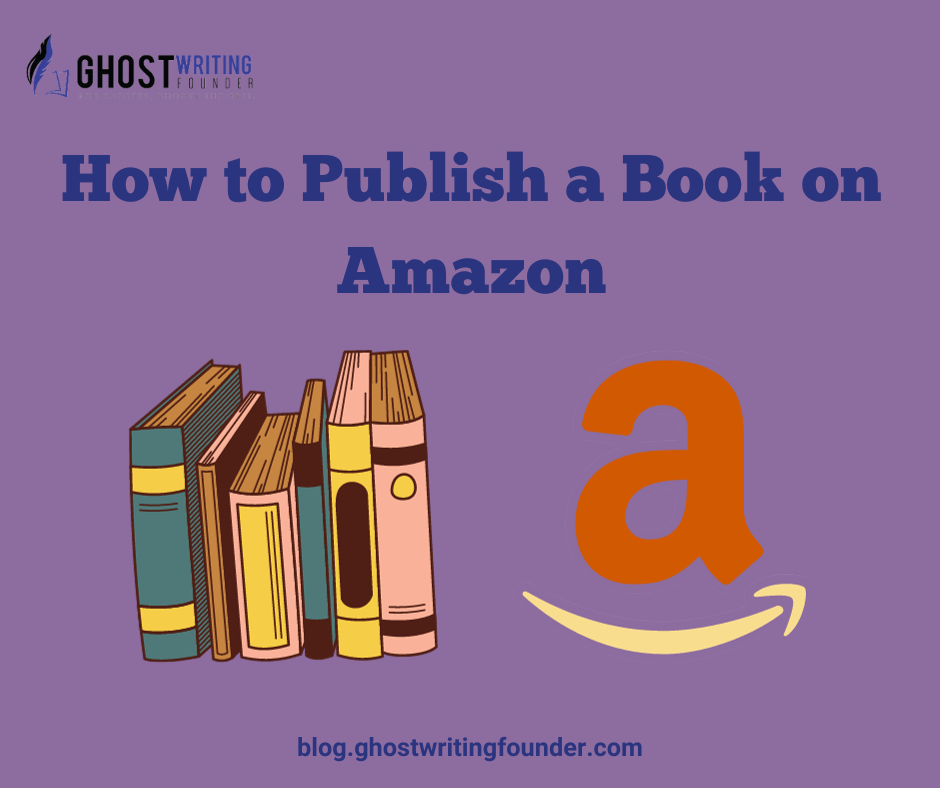
Writing
Writing a fantastic short tale is like crafting a miniature masterpiece. In only some pages, you can transport readers to extraordinary worlds, evoke feelings, and depart an enduring effect. But where do you begin? How do you make your quick story shine?
However, don’t worry because in this amazing guide, Ghostwriting Founder will give you 11 amazing tips for writing great short stories. Whether you are a pro author or simply starting, these hints will assist you in crafting compelling stories that captivate your target market.
Start with a Strong Idea
Every exceptional short story begins its creative journey with a strong idea as its compass. This idea forms the bedrock upon which your narrative unfolds, where the enchantment begins.
Think deeply about the message or emotion you intend to convey to your readers, and for inspiration, check out 25 Short Poems About Life and Struggles. Is it a whirlwind romance, a spine-tingling mystery, or an epic adventure through time and space? Once you’ve discovered this gem of an idea, allow it to stay in your mind so that it evolves a bit then you can expand it into a story.
Remember, the heart of your short story rests on this idea, so nurture it with care. Make sure you watch it convert into an excellent tale that will leave a lasting impression on those who read it. The beauty of a short story lies in its brevity, but this concise format demands that your idea shines brilliantly from the beginning. This will guide both you and your readers on an unforgettable literary journey.

Create Memorable Characters
In the world of short stories, characters are the lifeblood of your narrative. These literary personas need to shine brightly in the limited space you have. Create characters with depth, quirks, and relatable qualities that resonate with your readers. For more on character creation, see 8 Tips for Writing Short Film Scripts That Connect.
Your audience should feel connected, care about their fates, and be genuinely interested in what unfolds for them. So, for that, you can provide each character with a unique voice and a personality that lingers in your reader’s mind long after they’ve turned the final page.
Your characters should be more than words on paper; they should be living, breathing entities your readers can visualize and empathize with. So, when you write your short story journey, ensure your characters are ready to step into the spotlight and steal the show.
Keep It Concise
In short stories, making sure that your story is short is the main motive, isn’t it? Here, brevity is your faithful companion.
These tales thrive on their succinctness, demanding every word to serve a purpose. Therefore, embrace the art of conciseness, ensuring your narrative remains trim and efficient.
Avoid the allure of verbose descriptions or long-winded explanations that can dilute the impact of your story. Learn more about concise writing in Simple Steps for Writing an Amazing White Paper. Instead, focus on getting to the heart of your tale swiftly. Every sentence should contribute to the overall narrative, adding value to the reader’s experience.
Think of your words as precious gems, and each one should sparkle with meaning and significance. By keeping it concise, you allow your story to shine brightly, captivating your audience in your limited space.
Write a catchy Beginning
The start of your short story serves as a beckoning call to your readers, inviting them into your narrative world with eagerness. The threshold must be crossed with curiosity, and you are responsible for crafting a beginning that accomplishes this task.
Start your story with a scene that immediately grips your reader’s attention. For more on engaging beginnings, refer to Book Advertising Ideas for Skyrocketing Sales. This could be a thought-provoking moment, a compelling question, or a powerful statement. Essentially, it should leave your audience intrigued and desiring to explore further. As a writer, you hold the key to opening the door into your story, and the initial paragraphs should be the key that effortlessly turns in the reader’s mind. With a captivating beginning, you ensure that your readers embark on the journey you’ve designed for them, eager to uncover the treasures in your tale.
Build Tension
Tension is the pulse that keeps your readers’ hearts beating in anticipation. Creating and escalating tension within the confines of your short story is essential. Discover more about crafting tension in Best Horror Books of All Time. to keeping your audience engaged throughout their reading journey.
Craft conflict, whether it’s of the internal or external variety, and let it simmer and intensify as your narrative unfolds. This tension will propel your plot forward and make readers turn each page with bated breath. You will see that they will be eager to discover what happens next.
Whether it’s the simmering emotions of your characters or the looming external threats they face, tension is the driving force that ensures your short story remains riveting from start to finish. So, remember to infuse your narrative with this vital element.
Show, Don’t Tell
In short stories, the adage “show, don’t tell” reigns supreme; instead of merely narrating events, immerse your readers in the experience. For that, you should ensure that whatever you do, you vividly paint the scenes through actions, dialogues, and sensory details.
Invite your readers to feel the sun’s warmth on their skin, taste the bitterness of a character’s regret, or hear the whispers of a shared secret.
By allowing your readers to actively participate in the story, you create a connection that transcends mere words on a page. Instead of telling your audience that a character is nervous, show them by describing the quiver in their voice, the sweat on their brow, and the restless tapping of their fingers.
This approach engages your readers on a deeper level and allows them to become active participants in the story’s unfolding. If you do that, then it will make your short story an immersive and unforgettable experience.
Have a Clear Resolution
Just as a captivating beginning draws readers in, a memorable ending leaves a lasting imprint on their minds. When crafting the conclusion of your short story, aim for resonance and significance.
Consider your characters’ journeys and the emotional arc they’ve traversed. Your ending should provide closure but can also leave room for contemplation. It should leave readers reflecting on the themes, messages, or emotions your story evoked.
Make it count, whether it’s a strong realization, a thought-provoking twist, or a heartwarming resolution. A well-crafted ending is the final note of your literary symphony, and it should resonate long after your readers have closed the book.
So, take your time to mold the conclusion into something unforgettable, ensuring that your short story remains etched in the memories of those who experience it.
Edit Ruthlessly
Revision is where the magic of storytelling truly unfolds. For professional assistance, consider Book Editing Services. After completing your initial draft, set it aside, allowing you to return with fresh eyes. When you do, revise with diligence and attention to detail.
Begin by addressing the overarching elements of your story, such as plot consistency, character development, and pacing. Ensure your narrative flows smoothly, with each scene meaningfully contributing to the whole. Then, delve into the finer details, refining sentences for clarity and impact.
Eliminate redundancies, check for grammar and spelling errors, and ensure that every word serves a purpose. Seek feedback from trusted peers or beta readers to gain different perspectives on your work.
Remember that revision is not a one-time endeavor; it often involves multiple rounds of fine-tuning. As you polish your short story, you’ll uncover hidden layers and nuances that enhance the reading experience.
Seek Feedback
When you write short stories at that time, feedback will become your compass for improvement. Once you’ve revised your work to the best of your ability, it’s time to share it with others and invite constructive critique. You might find Content Development Services helpful in this stage.
Reach out to fellow writers, writing groups, or beta readers who can provide valuable insights. Embrace praise and criticism, for they offer different facets of your story’s impact. Be open to suggestions that may challenge your perspective or require further refinement. Constructive feedback can uncover blind spots and elevate your narrative to new heights.
Remember that your story is a gift you share with your readers, and seeking feedback is essential to the writing journey. By embracing critique, you enhance your storytelling skills, ensuring that your short stories become your creation and a resonant experience for those who read them.
Read Widely
Your writing growth is deeply intertwined with your reading habits, especially when writing short stories. To become a master of the craft, make reading an integral part of your journey. Enhance your skills with SEO Blog Writing Services for a broader perspective.
Throw yourself in a diverse range of stories, styles, and genres. Explore classic literature, contemporary fiction, and everything in between. Analyze how different authors construct their narratives, develop characters, and create captivating plots. Pay attention to their use of language, dialogue, and symbolism.
Additionally, don’t limit your reading to fiction alone. Non-fiction essays and articles can provide valuable insights and inspiration for your storytelling. Continuously expanding your literary horizons enriches your writing toolkit.
This will allow you to infuse fresh ideas and perspectives into your short stories.
Keep Writing
Writing great short stories, like any creative endeavor, requires a steadfast commitment to perseverance and patience. Understand that not every story will be perfect on the first attempt, and rejection may be part of the journey.
So make sure that no matter what challenges you Keep writing, revising, and honing your craft. Embrace the inevitable moments of self-doubt as opportunities for growth. Remember that even the most celebrated authors faced rejection before achieving success.
Essential Elements and Detailed Insights
| Tip Number | Key Aspect | Brief Description |
|---|---|---|
| 1 | Start With A Strong Idea | Focus on a central message or emotion, and let it evolve into a story. |
| 2 | Create Memorable Characters | Develop characters with depth and unique qualities that resonate with readers. |
| 3 | Keep It Concise | Ensure every word serves a purpose, embracing brevity and avoiding verbosity. |
| 4 | Write A Catchy Beginning | Craft an engaging start that immediately captures the reader’s interest. |
| 5 | Build Tension | Create and escalate tension to keep readers engaged and propel the plot. |
| 6 | Show, Don’t Tell | Use actions, dialogues, and sensory details to immerse readers in the story. |
| 7 | Have A Clear Resolution | Conclude with a memorable ending that leaves room for reflection and resonates with the themes. |
Conclusion
Writing great short stories is an art that combines creativity, skill, and dedication. By following these top 11 tips, you’ll be well on your way to crafting captivating and memorable tales. So, grab your pen or keyboard and start weaving your literary magic. Remember, the world is waiting to be enchanted by your short stories.









Leave a Reply